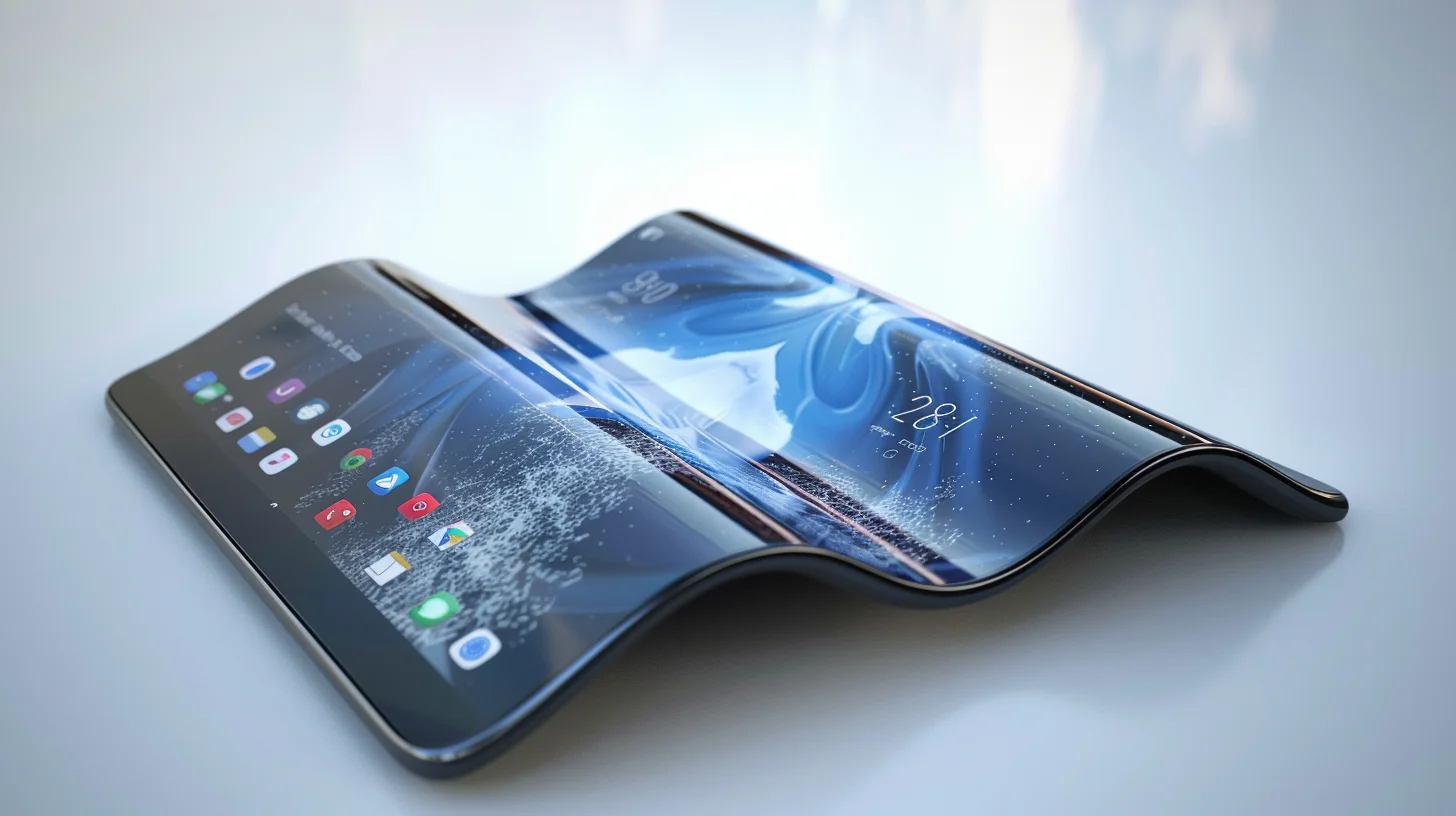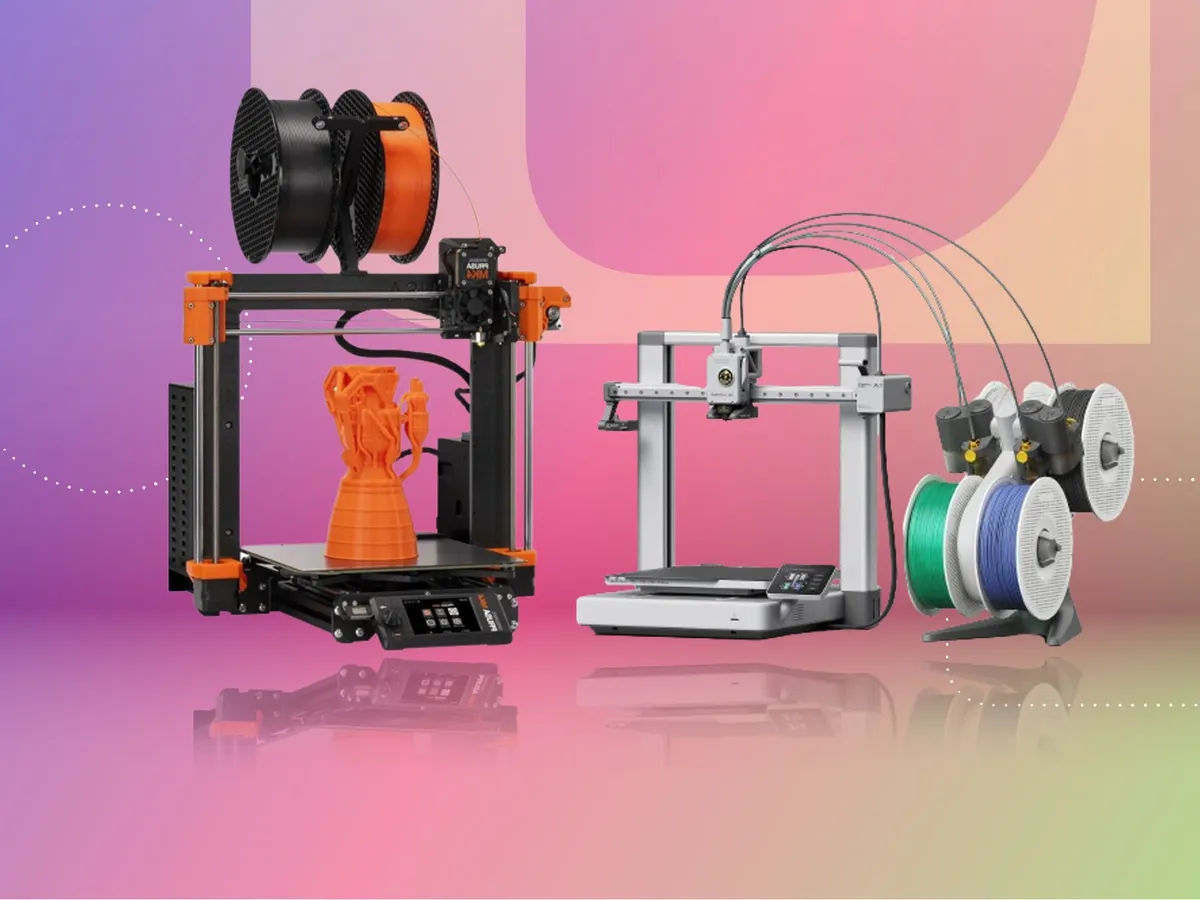Tech Gadgets of Tomorrow: What Innovations Are Just Around the Corner?
The world of technology is advancing at a rapid pace, and with each passing year, new gadgets and innovations promise to change how we live, work, and play. From smart devices that enhance daily life to futuristic machines that seem straight out of sci-fi movies, the future of technology is incredibly exciting. Here’s a glimpse into some of the most groundbreaking tech gadgets we can expect to see in the near future.

Foldable and Rollable Displays
The Future of Screens: Flexibility and Portability
The concept of foldable and rollable screens has been around for a while, but it's about to get a whole lot more practical. Devices like smartphones, tablets, and even televisions are poised to feature flexible displays that can fold, bend, or roll up without losing functionality.
- Smartphones: Brands like Samsung and Huawei have already released foldable phones, but we can expect them to become more affordable and durable in the near future. These devices could provide users with larger screens that fit easily into pockets or bags.
- Television Screens: LG and other manufacturers are working on TVs that roll up into a sleek, compact roll when not in use. This innovation could transform the way we think about home entertainment, allowing for more space-saving and customizable setups.
Augmented Reality (AR) Glasses
The Next Step in Smart Technology
Imagine having a pair of glasses that overlay digital information onto the real world, providing you with instant access to maps, notifications, and even virtual objects without needing to pull out a phone or device. This is the promise of augmented reality glasses, which are expected to be more accessible and refined in the near future.
- Consumer Options: Companies like Apple and Facebook (now Meta) are developing AR glasses that could change how we interact with the world. These glasses might allow users to engage with digital content, play games, or get real-time information about their surroundings while maintaining a natural, hands-free experience.
- Applications: Beyond entertainment, AR glasses could have significant practical uses in industries like education, healthcare, and retail, providing professionals with valuable real-time data or immersive learning experiences.
Artificial Intelligence (AI) Assistants
Smart Devices with Smarter Abilities
AI assistants, like Siri, Alexa, and Google Assistant, have already made their way into our homes, but the next generation of AI gadgets promises to be even more intelligent, proactive, and personal.
- Emotion-Sensing AI: The next wave of AI will be able to better understand human emotions through voice tone, facial expressions, and even body language. This will allow devices to offer more personalized responses, making your smart assistant feel like a true companion.
- Proactive Technology: Rather than just reacting to commands, future AI assistants could anticipate needs before you ask. For instance, your AI could suggest things to do based on your calendar or suggest activities to improve your mood after a long day.
Smart Wearables: Beyond the Fitness Tracker
Health Tech That Does More Than Track Steps
While fitness trackers like Fitbit and the Apple Watch have been incredibly popular, the next generation of wearables will go far beyond just tracking exercise. Expect to see wearables that focus on health monitoring, personal well-being, and even virtual fitness experiences.
- Health Monitoring: Advanced sensors could track things like blood sugar levels, blood pressure, hydration, and even early signs of diseases such as cancer. These wearables might alert users to potential health issues before they become serious.
- Virtual Fitness: Wearables will also integrate with AR and VR for immersive fitness experiences. Imagine wearing a headset that transports you to a virtual gym or outdoor environment where you can work out in a world that reacts to your movements.
Smart Home Integration: Everything Connected
A More Intelligent and Automated Home
Smart home technology has come a long way, but we're just scratching the surface. In the near future, homes will be more automated and interconnected than ever before.
- Smart Appliances: Refrigerators that suggest recipes based on what’s inside, washing machines that order detergent when you’re running low, and smart ovens that cook meals to perfection based on your preferences will become more common. These devices will make managing a household more efficient and less time-consuming.
- AI-Powered Home Assistants: Future smart home hubs will integrate AI to not just control lights and temperature but also optimize energy usage, suggest changes to your routines for better health, and even learn your preferences to anticipate needs before you ask.
Electric Vehicles (EVs) and Autonomous Cars
Driving into the Future
Electric vehicles (EVs) are already becoming more mainstream, but the future of driving will also involve self-driving technology. These innovations are expected to revolutionize transportation, making it safer, more eco-friendly, and more convenient.
- Fully Autonomous Vehicles: While some cars are already semi-autonomous, fully self-driving cars could be here sooner than we think. These vehicles will be able to navigate streets, make decisions, and even park themselves, all without human intervention. This could greatly reduce accidents and traffic congestion.
- EV Advancements: The push for sustainable transportation will continue with improvements in electric vehicle range, faster charging times, and a more widespread network of charging stations. Plus, more car manufacturers are shifting towards EV production, making it an even more accessible option.
3D Printing: From Prototypes to Personal Goods
The Future of Manufacturing and Personalization
3D printing technology has already made waves in manufacturing, but it’s poised to revolutionize many industries, including healthcare, fashion, and home goods.
- Personalized Products: Imagine printing your own clothes or accessories at home, based on custom designs or measurements. 3D printing could allow individuals to create unique, tailored products from home.
- Medical Advancements: In the medical field, 3D printing is already being used to create prosthetics and even organs. The ability to print customized implants and devices will not only improve the accuracy of medical procedures but also reduce costs.

Quantum Computing: A Leap into the Future
The Next Generation of Computing Power
Quantum computing is still in its infancy, but it promises to completely change the way we process information. Unlike traditional computers, which use binary data (1s and 0s), quantum computers use qubits, which can represent multiple states simultaneously. This opens the door to solving problems that are currently unsolvable by classical computers.
- Applications: Quantum computing could revolutionize industries like cryptography, drug development, and artificial intelligence. It could speed up the development of new technologies, accelerate research in fields like medicine, and improve cybersecurity.
Conclusion: A Glimpse of the Future
The tech gadgets of tomorrow are not just about convenience—they’re about making our lives more connected, efficient, and enjoyable. From flexible displays to AI-powered devices and autonomous cars, the innovations just around the corner promise to transform how we interact with the world. While some of these technologies are already on the horizon, others may take a little more time to perfect. One thing is clear: the future of tech is incredibly exciting, and it’s just getting started.












